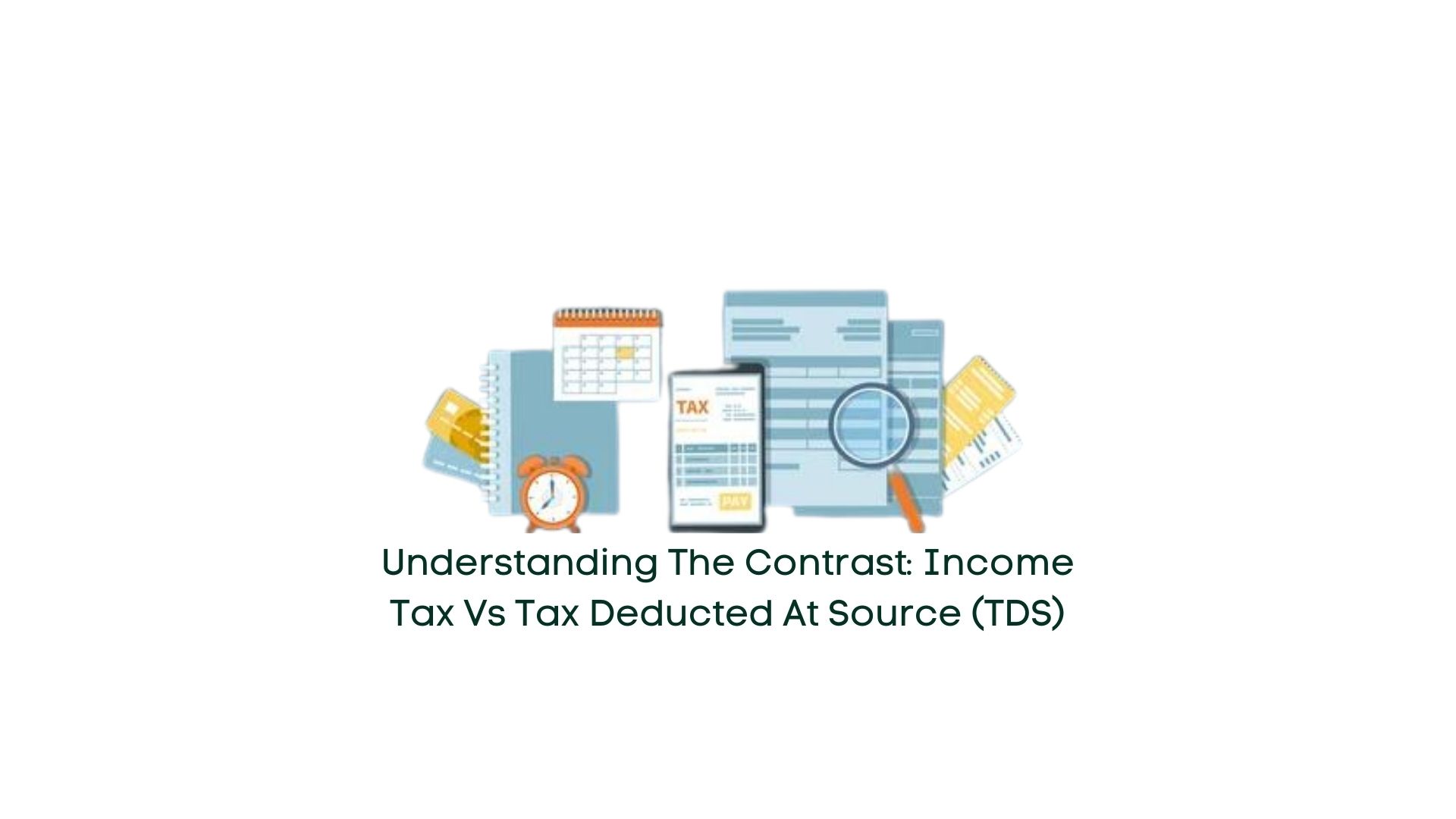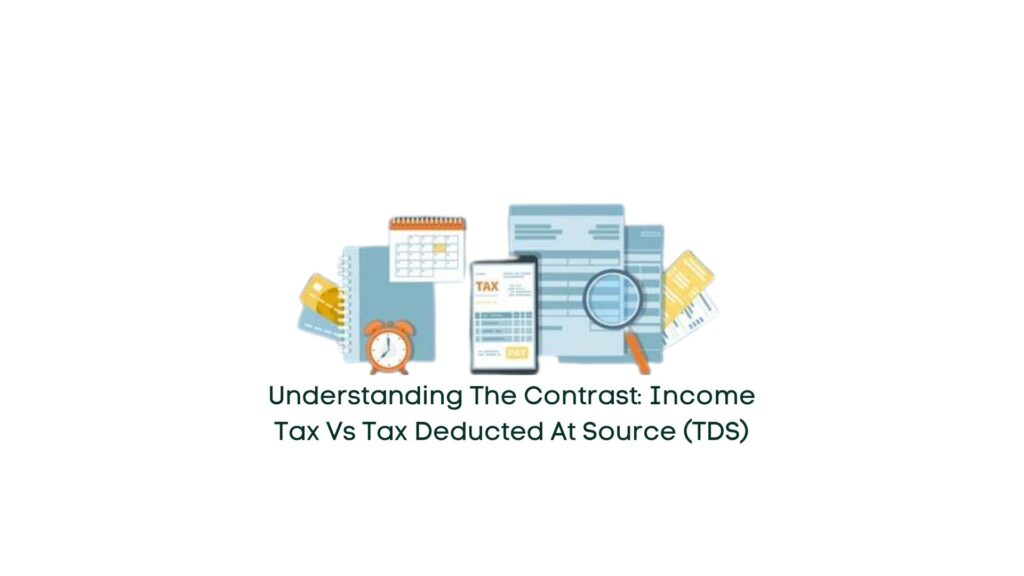
20 Mar Understanding the Contrast: Income Tax vs Tax Deducted at Source (TDS)

Distinguishing Income Tax:
Income tax and Tax Deducted at Source (TDS) represent distinct facets of taxation, each with its own operational framework.
Income tax constitutes a levy imposed on an individual’s or company’s yearly earnings within a specific financial period. Governed by the Income-Tax Act (ITA) of 1961, it delineates the procedures for tax computation, evaluation, and collection.
This tax is applicable to various income streams such as salaries, rental income, professional profits, and capital gains. Individuals surpassing the threshold of Rs 2.5 lakh under the old tax system or Rs 3 lakh under the new regime are liable to pay income tax. Attempting to evade income tax constitutes a punishable offense under the law.
Decoding TDS:
On the other hand, Tax Deducted at Source (TDS) pertains to tax deductions made from the source of income and promptly remitted to the government. In TDS, entities disbursing specified payments like salaries, interest, rents, or professional fees are mandated to withhold a designated tax percentage before disbursing the amount. This measure aids in curbing tax evasion and streamlines the tax collection process.
Comparison: Income Tax Return (ITR) vs TDS:
Income Tax Return (ITR):
- Individuals with annual incomes exceeding Rs 2.5 lakh (old tax regime) or Rs 3 lakh (new tax regime) are obligated to file Income Tax Returns.
- For senior citizens aged between 60 and 80, the threshold stands at Rs 3 lakh, while those above 80 years enjoy a threshold of Rs 5 lakh.
Tax Deducted at Source (TDS):
- TDS is deducted from various income sources such as salaries, investments, rents, winnings from contests or lotteries, commissions, payments to contractors, and other miscellaneous sources.
- It encompasses payments related to the National Savings Scheme (NSC) and similar financial avenues.
Key Differences between Income Tax and TDS:
- Timing of Payment: While income tax is settled at the culmination of the financial year, TDS is deducted periodically throughout the year at the income source.
- Taxation Responsibility: TDS is deducted by the payer, whether an employer or financial institution, and remitted to the government, whereas income tax is directly paid by the taxpayer after determining their tax liability.
- Tax Rate Determination: TDS rates are predetermined by the government based on the nature of payments, whereas income tax rates are structured according to income slabs as stipulated by tax laws.
- Scope of Application: TDS applies to specific payments such as salaries, interest, rents, and professional fees, while income tax is levied on the total annual income, including salaries and capital gains.


No Comments